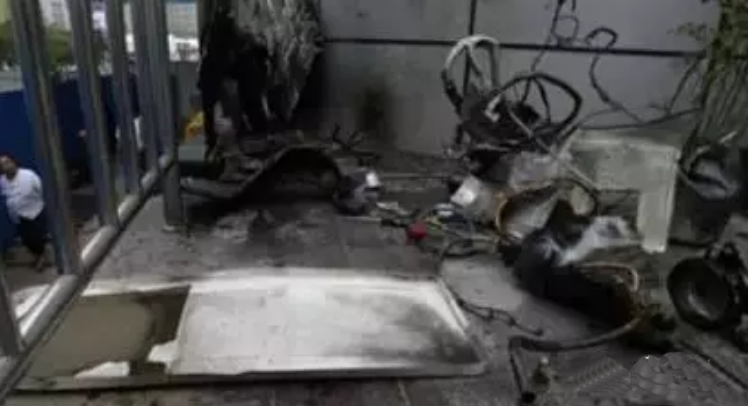The reaction characteristics of air-conditioning refrigerant and air are the culprit of compressor explosion!
Recently, the news reported that air conditioners and refrigerator compressors exploded, causing serious injuries to installation and maintenance workers. So I searched and sorted out some related materials for everyone to learn and use.

The reaction characteristics of refrigerant and air have an important impact on the safety of air-conditioning compressors. Using the principle of minimum free energy, the explosive reaction parameters of the mixture of two refrigerants R407C and R410A and air were calculated numerically, and the explosive reaction temperature and pressure of the mixed gas under different initial pressures and different refrigerant contents were obtained. The reaction pressure conditions and explosion limit range of the mixed gas are analyzed.
The results show:
When the initial pressure is lower than 0.2MPa, neither R407C-air mixed gas nor R410A-air mixed gas will explode.
When the initial pressure exceeds 0.3MPa, the mixed gas can explode. The explosive reaction temperature and pressure increase with the increase of the initial pressure. The mass fractions of R407C and R410A are around 34% and 35% respectively, and the reaction temperature and pressure of the mixed gas reach Maximum value.
R407C and R410A have similar flammable and explosive characteristics, but the explosion range is wider than freon (refrigerant R22) gas. That is, explosions are more likely to occur under the same conditions. The calculation results can provide a certain basis for the safe use of new refrigerants R407C and R410A. For the refrigerator compressor, the operating pressure is relatively small, but during the maintenance process, be careful with the R600 flammable and explosive refrigerant!

Based on various compressor explosion cases, we can draw the following reasons:
1. A certain amount of air is mixed into the system. When the compressor is running, there is oxygen in the air to support combustion, plus the compressor's oil and refrigerant, and the high temperature generated during a period of time when the compressor is running, combined to cause an explosion.
2. Close the high-pressure valve, start the compressor, and check the system for leakage in this way. After the compressor runs for a few minutes, under certain pressure and temperature conditions, the refrigerating oil will ignite spontaneously, causing abnormal high temperature and high pressure inside the compressor , Will eventually cause the compressor shell to rupture and then explode.
When you are not sure whether the air conditioner has a fluorine leakage failure, you must be careful when you move the machine to collect the refrigerant. At this time, you must close the high pressure valve. If the system leaks fluorine, more air will be sucked in. Running for a few minutes may cause an explosion. To prevent this, check whether the operating pressure of the system is stable before moving the machine. If the pressure indicator swings unstable, or the operating pressure is lower than normal, the cooling is poor. It is about to suspect fluorine leakage.
When the air conditioner compressor has a leakage trip, some maintenance personnel will take it. It is very unsafe to remove the ground wire connection. Customers consider the high maintenance cost of replacing the compressor. In order to save money, the maintenance personnel will also In order to make some money, the ground wire will be removed when the compressor is only leaking, but can run.
If the shell is electrified, who doesn't know if it is touched, who will bear the responsibility if it is electrified? What if the air conditioner leaks fluorine, air enters, and the compressor explodes and hurts people? So here to remind everyone, don’t go for repairs like that, if something goes wrong, everything is too late!



